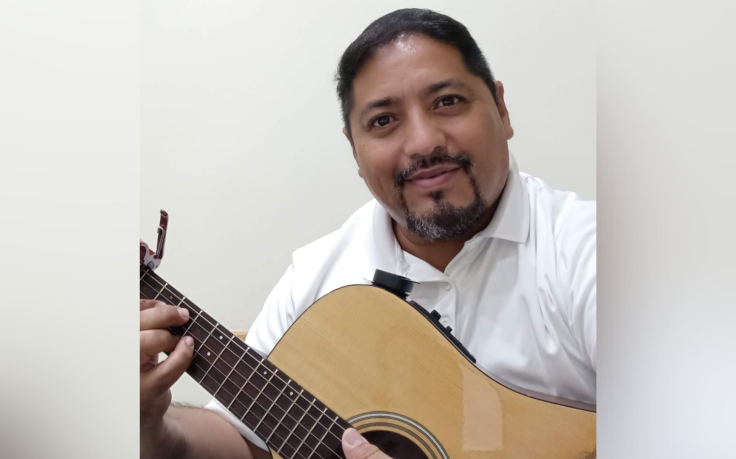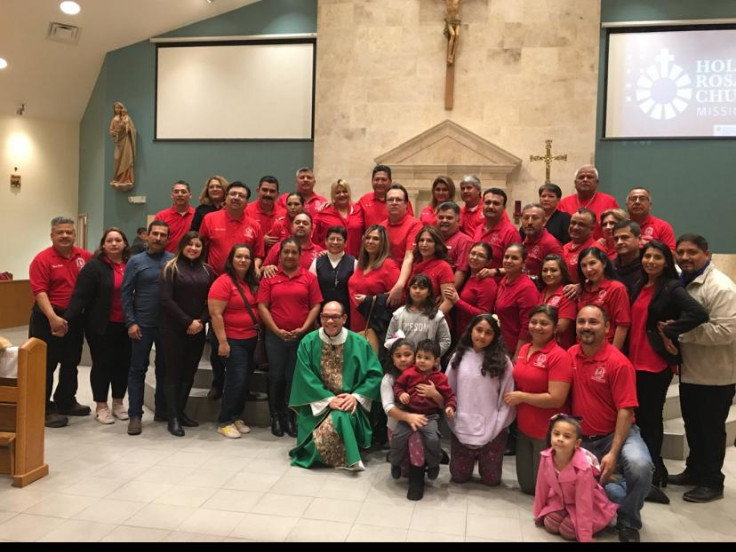
On Sunday, January 26, Marco Carmiño set out to pick up a piano before his scheduled performance at the 5 p.m. Spanish Mass at Nuestra Señora de Lourdes, a Catholic church in Mission, Texas. He never made it.
While his fellow parishioners carried on with the service, Carmiño, 52, sat just miles away, confused by an unusually long traffic stop—only to realize he was being deported.
At around 3:15 p.m., a state trooper pulled him over. "He told me I was missing my front license plate. I didn't know it was a crime—it was my daughter's car," he told the Latin Times.
The officer then asked for his driver's license. Carmiño handed over his Mexican consulate card, a document accepted by some law enforcement agencies, particularly in sanctuary cities. While Mission, Texas, is not officially classified as one, it is a predominantly Latino community where many families have mixed legal status, making the use of such documents common.
"In my 13 years living here, I've been stopped three times for minor traffic violations. I've always used my consulate card and never had a problem—but this time was different," he recounted.
Shortly after, Immigration and Customs Enforcement (ICE) arrived at the scene and took Carmiño into custody. "They treated me with respect and didn't handcuff me," he said. He was taken to an ICE facility, where he was questioned and detained alongside other migrants, who he was instructed not to talk to.
Less than 24 hours later, Carmiño was deported to Reynosa, Mexico—separated from his wife and three children. "At first, it was very difficult and sad. I could not understand why this happened, I'm not a criminal," he said.
The Latin Times reached out to ICE for comment on Carmiño's case but did not receive a response before publication.
A Life Built in the U.S. Now Feels Out of Reach

Carmiño and his wife moved to Mission, Texas, in 2011. Two years later, they welcomed their third child and decided to stay permanently, drawn by economic opportunities. He built a landscaping business and became a dedicated member of the Rio Grande Valley's Catholic community, volunteering as a musician for Sunday Mass.
Since being deported, Carmiño can't operate his business, forcing him to find alternative ways to provide for his family. "Fortunately, I also gave music lessons, and I have continued some of those via video calls," he said. "I'm trying to earn whatever I can, I just need to keep going."
Now, only his youngest daughter—who is a U.S. citizen—can visit him in Mexico. The rest of his family remains in Texas, relying on community support as his wife prepares to return to work. As his new life in Mexico unfolds, Carmiño is working with an immigration attorney to explore legal options for returning to the U.S., if any.
"We don't know what the future holds, but we are preparing for every possible scenario."
Deportation Under the Trump Administration
Carmiño is one of more than 5,000 undocumented immigrants deported during the first two weeks of President Donald Trump's second term. For the Trump administration, deportation figures are a critical metric in achieving its broader immigration agenda, with an estimated 11 million undocumented immigrants currently residing in the U.S.
While top administration officials initially claimed they would be focusing on detaining "criminals" during the first deportation wave, the Latin Times has received multiple reports of people such as Carmiño who were reported to ICE during minor traffic stops.
Additionally, the word "criminal," according to White House Press Secretary Karoline Leavitt, now applies to any undocumented immigrant residing in the U.S., regardless of criminal history.
"If you are an individual, a foreign national, who illegally enters the United States of America, you are by definition a criminal," Leavitt said during a January presser. "I know the last administration didn't see it that way. So it's a big culture shift in our nation to view someone who breaks our immigration law as a criminal, but that's exactly what they are."
© 2025 Latin Times. All rights reserved. Do not reproduce without permission.





